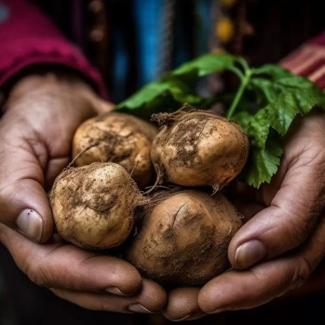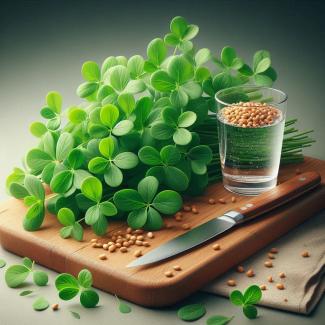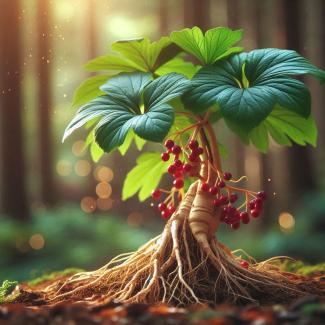
Maca root (Lepidium meyenii), a humble plant native to the high Andes of Peru, has captured the attention of researchers, health enthusiasts, and traditional medicine practitioners around the globe. Revered for centuries by indigenous populations for its energizing and fertility-boosting properties, maca root has recently gained a reputation as a potent natural supplement that enhances sexual health and vitality. This powerful tuber belongs to the cruciferous family, alongside vegetables like broccoli, cauliflower, and kale, yet its unique phytochemical makeup and high-altitude growth habitat set it apart as a superfood with remarkable health benefits.
Sexual wellness is a vital aspect of human life, influencing emotional health, relationships, and overall quality of life. However, many individuals experience issues related to libido, erectile function, and sexual stamina due to various factors like stress, aging, hormonal imbalances, and lifestyle choices. Natural remedies, such as maca root, offer a promising alternative or complement to conventional treatments for sexual dysfunctions.
In this comprehensive description, we will explore the sexual power of maca root in detail, diving into its chemical composition, its role in traditional and modern medicine, and the scientific evidence supporting its effects on sexual health. We will also address two commonly asked questions: "Where does maca root grow?" and "Can I grow maca root myself?" By integrating specific studies, clinical trials, and expert opinions, this article aims to provide an authoritative resource for anyone interested in the sexual health benefits of maca root.
The Chemical Composition of Maca Root: Understanding Its Sexual Power
To understand how maca root exerts its sexual health benefits, we must first examine its chemical composition. Maca root is rich in bioactive compounds, including:
- Alkaloids (macaenes and macamides): These compounds are believed to play a central role in maca's effects on sexual health and hormonal balance. Macamides, in particular, are unique to maca root and have been studied for their neuroprotective properties, which may contribute to enhanced sexual stamina and performance.
- Glucosinolates: These sulfur-containing compounds are known for their protective effects against certain cancers, but they also have a role in balancing hormones, which is crucial for sexual health.
- Sterols: Plant sterols in maca root, such as beta-sitosterol, are linked to improved blood flow, which can help in maintaining erections and improving sexual performance.
- Vitamins and Minerals: Maca is a good source of vitamins B1, B2, C, and E, which are essential for energy production, reducing fatigue, and supporting overall vitality. It also contains important minerals such as iron, calcium, and zinc, which are vital for reproductive health.
Maca's nutrient profile alone suggests its potential to support sexual health, but what makes maca particularly powerful is its adaptogenic properties. Adaptogens are natural substances that help the body adapt to stress and normalize bodily functions, including hormonal balance. By reducing the impact of stress and anxiety, maca can help boost libido and sexual performance.
Maca Root and Sexual Health: The Scientific Evidence
The traditional use of maca root as an aphrodisiac and fertility enhancer has been well-documented in historical texts and indigenous practices. However, modern scientific studies have sought to verify these claims and better understand the mechanisms behind maca's sexual power.
1. Libido Enhancement
Several clinical trials have demonstrated maca's ability to increase sexual desire in both men and women. A notable study published in the journal Andrologia in 2002 investigated the effects of maca root on sexual desire in men. The double-blind, placebo-controlled study involved 57 men aged 21 to 56. After 12 weeks of taking either a placebo or maca extract (1.5 g or 3 g daily), the group receiving maca reported a significant increase in sexual desire compared to the placebo group. This finding suggests that maca may have a potent effect on libido, potentially by influencing hormonal pathways or neurotransmitter activity related to sexual arousal .
2. Erectile Dysfunction
Maca has also shown promise in improving erectile function. A study published in the journal BMC Complementary and Alternative Medicine in 2009 evaluated the effects of maca root on mild erectile dysfunction in men. The randomized, double-blind, placebo-controlled trial involved 50 men with mild erectile dysfunction who were given 2.4 grams of maca extract per day for 12 weeks. The results showed significant improvements in erectile function and sexual satisfaction in the maca group compared to the placebo group. These findings suggest that maca could be an effective natural remedy for men with mild to moderate erectile dysfunction .
3. Fertility and Reproductive Health
Maca's impact on fertility has been a subject of much interest, especially in men. Research has shown that maca may improve sperm quality, count, and motility, which are key factors in male fertility. In a study conducted in 2001 and published in the journal Fertility and Sterility, men who consumed maca for four months experienced an improvement in semen volume, sperm count, and sperm motility. These improvements suggest that maca may be beneficial for men facing fertility challenges .
In women, maca has been studied for its ability to alleviate symptoms of menopause, such as hot flashes, mood swings, and sexual dysfunction. These effects are believed to be due to maca's capacity to balance estrogen levels, which can fluctuate during menopause and impact sexual desire and function. A 2008 study published in Menopause found that women who took maca for six weeks reported improvements in sexual function and mood, suggesting that maca can support sexual wellness in postmenopausal women .
4. Sexual Stamina and Energy
In addition to enhancing libido and erectile function, maca is known for its energy-boosting properties, which can translate into improved sexual stamina. Maca's adaptogenic effects help the body combat fatigue and improve endurance, which are essential for maintaining healthy sexual function. A study conducted in 2009 and published in the journal Ethnopharmacology found that maca supplementation improved energy and endurance in athletes, leading researchers to suggest that maca may also benefit sexual stamina in non-athletes .
Where Does Maca Root Grow?
Maca root is native to the high-altitude regions of the Andes Mountains in Peru, specifically in the Junín plateau at altitudes between 3,500 and 4,500 meters (11,500 to 14,800 feet) above sea level. This harsh environment, characterized by intense sunlight, cold temperatures, and nutrient-poor soils, contributes to the plant's unique chemical composition and resilience. Maca is one of the few crops that can survive and thrive in such extreme conditions, making it a vital food source for the indigenous populations of the region.
The high-altitude environment where maca grows plays a critical role in the development of its bioactive compounds. Researchers believe that the plant's adaptogenic properties, including its ability to support hormonal balance and enhance sexual function, are a direct result of the environmental stressors it faces in the Andes.
In terms of cultivation, maca requires specific growing conditions that are difficult to replicate in other parts of the world. The plant thrives in nutrient-poor, sandy soils and requires cold temperatures for optimal growth. Maca is typically planted in the early spring and harvested in the fall, after which the root is dried in the sun for several weeks before being processed into powders, extracts, or capsules.
Can I Grow Maca Root Myself?
While maca root can technically be grown outside of its native environment, replicating the unique conditions of the high Andes can be challenging. Maca requires cold temperatures, high altitudes, and poor, well-drained soils to thrive. These specific environmental factors are what give maca its powerful adaptogenic properties, so growing it in a typical garden or at lower altitudes may result in a less potent plant.
For those interested in cultivating maca root, here are some key considerations:
- Climate: Maca grows best in cool, high-altitude environments with temperatures ranging from 5°C to 15°C (41°F to 59°F). It can tolerate frost and even brief periods of snow, but it does not do well in warm or tropical climates.
- Soil: Maca prefers nutrient-poor, sandy soils with good drainage. If growing maca in a garden or greenhouse, it's essential to mimic the well-drained, rocky soil of the Andes by mixing sand or gravel into the soil. Overly rich or fertile soils can lead to poor growth and reduced potency.
- Sunlight: Maca thrives in full sunlight but can also tolerate partial shade. It is important to ensure that the plant receives ample light during its growing season.
- Watering: Maca is adapted to the dry conditions of the high Andes, so it does not require frequent watering. Overwatering can lead to root rot and other issues. It's best to water the plant sparingly, allowing the soil to dry out between watering sessions.
- Patience: Growing maca requires patience, as the plant has a long growing cycle. It typically takes six to nine months for the root to fully mature. After harvesting, the root needs to be dried for several weeks before it can be consumed or processed.
If you live in a region with a suitable climate, such as certain parts of the Rocky Mountains or other high-altitude areas, you may be able to grow maca successfully. However, for most people, it is more practical to purchase maca root products that have been grown and harvested in Peru, where the plant thrives naturally.
Maca root is a remarkable plant with a long history of use as a natural aphrodisiac and fertility enhancer. Its sexual power lies in its unique chemical composition, which includes macamides, glucosinolates, sterols, and essential vitamins and minerals. Modern scientific studies have confirmed many of the traditional claims about maca's ability to boost libido, improve erectile function, enhance fertility, and support sexual stamina.






